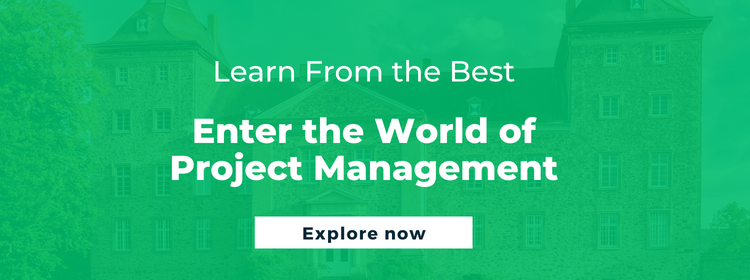What is Project Quality Management? How Does it Boost Customer Satisfaction?

- Project Quality Management
- Importance of Project Quality Management
- Project Quality Management Processes
- Key Elements of Project Quality Management
- Benefits of a Project Quality Management Plan
- Project Quality Management Tools and Techniques
- Phases of Project Quality Management
- A Career in Project Quality Management
For anyone facing challenges in meeting project specifications or delivering quality projects, look no further than auto major Toyota for inspiration. Right from the development stage to the production line, the Japanese company uses a systematic approach to ensure every aspect of its projects meets the highest standard. Essentially, this has helped it gain an unassailable reputation in the automotive industry for delivering reliable and high-quality vehicles. You too can achieve similar results by following Toyota’s Project Quality Management (PQM) mantra. Let’s dig deeper into this management approach.
Project Quality Management
It is an integrated framework of any organization’s total quality management process. The management of quality comprises processes required to deliver a project on time while ensuring that the demands of the stakeholders, including customers, are met. Moreover, it is the ability to manage a product and deliver output in conformity with the requirements of the users while maximizing profits for the company.
Project quality management combines two frameworks: quality management and project management. For instance, let’s take the example of a multimedia tech company that is working on a new high-quality software application. Now, to ensure that it meets customer expectations and delivers value, there are two aspects that the project management team needs to look into. First, it has to ensure that there are no functionality defects in the software (this is referred to as quality management). Next, it must ensure that the new software is equipped with the latest features that are in demand in the market so that the company can generate more revenue (this is referred to as project management).
ALSO READ: What is Project Management and How to Become a Successful PM
Importance of Project Quality Management
Better Decision Making
PQM provides relevant data to an organization and enables it to make strategic decisions by identifying quality requirements. This helps generate revenue.
Enhanced Management
PQM promotes a culture of continuous improvement, leading to increased job satisfaction and a sense of accomplishment among the team members. It facilitates the seamless implementation of management processes.
Enhances Brand Reputation
PQM can help an organization establish a reputation for delivering high-quality products and services, leading to increased business opportunities and a stronger brand.
Project Quality Management Processes
Quality Management Planning
It sets quality standards and objectives for the project and determines how these standards will be met. In addition, it includes identifying the processes, tools, and techniques to manage and monitor project quality.
Perform Quality Assurance
PQM ensures that the project is executed by the quality plan. Additionally, this includes activities such as regular quality audits and inspections, as well as continuous monitoring of project performance.
Control Quality
It monitors and controls the quality of project outputs, including products, services, and deliverables. Moreover, this is done by testing, inspections, and verifying the project requirements have been met.
Key Elements of Project Quality Management
- Customer Satisfaction: The primary goal of PQM is to ensure that a project meets or exceeds customer requirements and expectations, with customer satisfaction being the best way to assess this. Thus, customer satisfaction is a core element of quality management.
- Prevention Over Inspection: Inspection-based quality control focuses on detecting and correcting defects after they have occurred. In essence, this approach is reactive and can be costly and time-consuming. PQM enables organizations to take proactive measures to prevent defects, improve quality, and achieve better project outcomes.
- Continuous Improvement: In PQM, continuous improvement is viewed as an essential component of achieving high levels of customer satisfaction. Moreover, increasing project efficiency and reducing the cost of quality are also considered vital.
Benefits of a Project Quality Management Plan
A project quality management plan offers the following benefits throughout the PQM lifecycle:
Improved Customer Satisfaction
In a PQM plan, customers’ needs and expectations are clearly defined. Moreover, the organization focuses on achieving these needs. This increases customer satisfaction and a better overall perception of the project and the organization.
Enhanced Project Performance
PQM ensures that all aspects of the project are executed efficiently and effectively. Hence, this leads to a higher quality of work, reduced risk of rework and delays, and helps in cost management.
Better Resource Utilization
PQM provides a framework for monitoring and controlling the use of resources. Thus, it results in more efficient use of time, money, and human resources.
Increased Stakeholder Confidence
By meeting quality standards, PQM increases the confidence of stakeholders in the project and the organization. Hence, this leads to increased support and funding for future projects.
Project Quality Management Tools and Techniques
There are different types of tools and techniques to aid this process.
Project Quality Management (PQM) Tools
- Cost of Quality (COQ) Analysis: It calculates the cost of poor quality, including the cost of prevention, appraisal, and internal and external failure
- Statistical Process Control (SPC): This is a set of statistical methods used to monitor and control a process to ensure it is operating within defined limits
- Control Charts: This is a statistical tool used to monitor a process to determine if it is in control, and identifies any special cause variations
- Pareto Charts: These are graphical representations showing which factors are contributing the most to a problem or issue
- Flowchart: It represents a process or workflow, used for identifying potential bottlenecks or areas for improvement
Project Quality Management Techniques
- Continuous Improvement: This is a systematic approach that identifies and implements improvements in a process or product
- Quality Audits: This is an independent review of a process or product to assess its compliance with quality standards
- Design of Experiments (DOE): DOE is a statistical method used to determine the effect of different variables on a process or product
- Lean Methodology: This is a management approach that seeks to optimize the flow of work by eliminating waste and improving efficiency
Phases of Project Quality Management
There are three dimensions or levels of project quality management. The first involves meeting the specified requirements and is called quality control. Then, the next is quality management; which focuses on working beyond the specified requirements. Finally, the last level is known as total quality management. In essence, it focuses on constant improvement to enhance customer satisfaction.
The following are the five essential phases of project quality management:
- Project Quality Initiation: The project quality management framework starts with identifying a potential project and seeking authorization to initiate it. Here, a project manager is appointed who selects the core team and identifies potential risks involved in the project.
- Project Quality Planning: Now, all stakeholders are informed about the project and their approval and inputs are received. The project management team starts preparing an action plan to complete the project. This step requires market research to understand customer requirements and gather data on ongoing market trends. In addition, the team identifies customer satisfaction standards and suppliers.
- Project Quality Assurance: In the next stage, the project management team focuses on improving the processes to provide quality deliverables. It involves communicating with external stakeholders to overcome obstacles. The team gathers data, identifies the root cause of defects, and conducts quality audits
- Project Quality Control: In the quality control phase, the project management team analyzes customer satisfaction levels and focuses on improving processes. This stage mainly involves running various tests and correcting errors to ensure the best quality.
- Project Quality Closure: Lastly, the team delivers the final project to the customers, who accept the project and are satisfied. In fact, this phase also involves providing support and training to the customers, assessing the overall project to improve the processes, and acknowledging and rewarding various members of the project management team.
A Career in Project Quality Management
You will need to know the following if you are planning to build a career in project quality management:
- Quality management methodologies, such as Six Sigma or Lean
- Quality tools and techniques, such as statistical process control and root cause analysis
- Quality standards and regulations, such as ISO 9001 or CMMI
- Project management methodologies, such as Agile or Waterfall
- Quality metrics and measurement techniques
- Quality management software and systems
- Risk management and mitigation strategies
Due to intense competition in the market and rapidly changing market conditions, project quality management has become an integral part of the project management framework. Hence, at Emeritus, we have online project management courses that can help you acquire such relevant skills to accelerate your career.
Write to us at content@emeritus.org


















